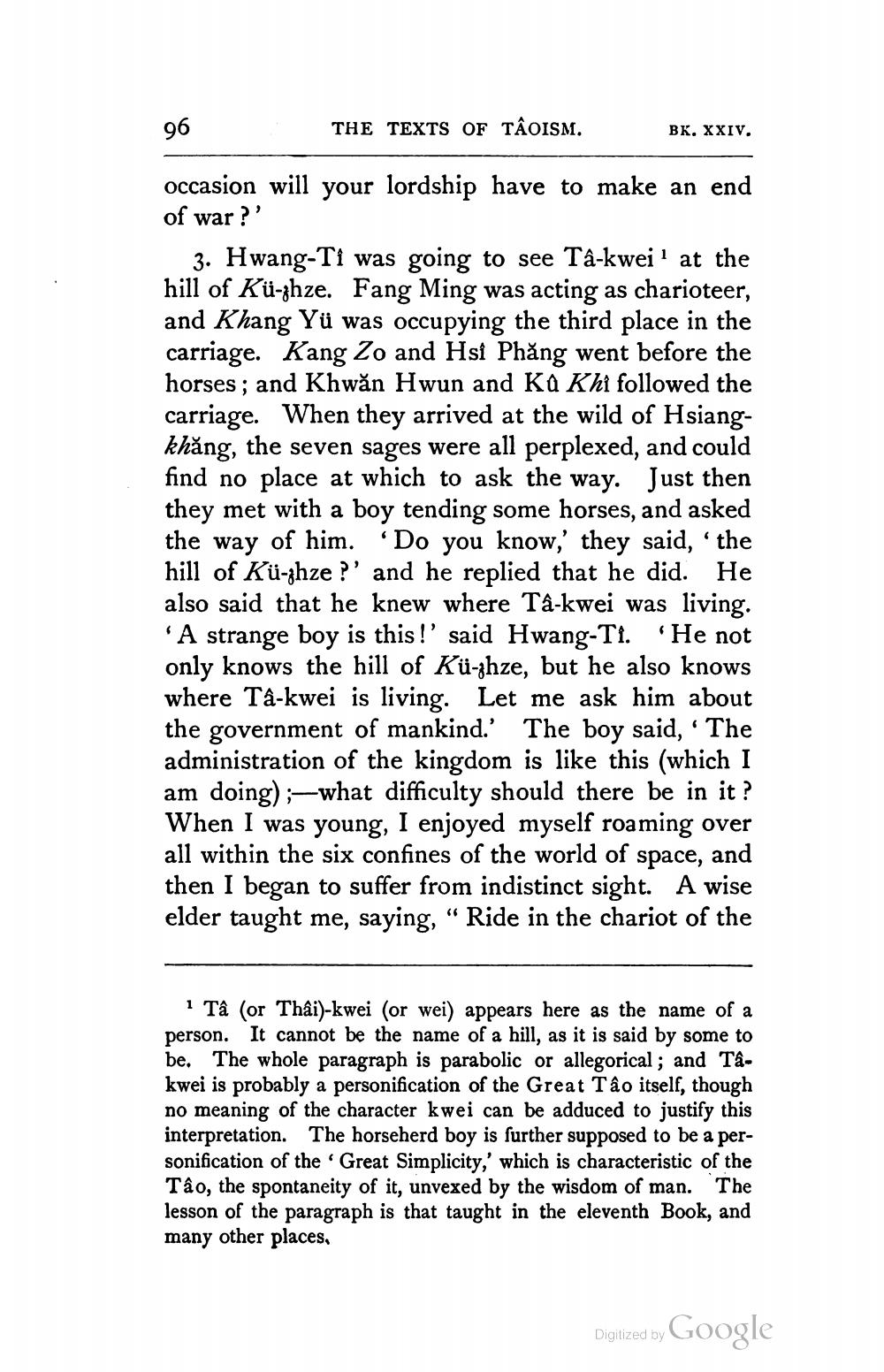________________
THE TEXTS OF TAOISM.
occasion will your lordship have to make an end of war?'
96
BK. XXIV.
3. Hwang-Ti was going to see Tâ-kwei' at the hill of Kü-zhze. Fang Ming was acting as charioteer, and Khang Yü was occupying the third place in the carriage. Kang Zo and Hsi Phăng went before the horses; and Khwăn Hwun and Kû Khi followed the carriage. When they arrived at the wild of Hsiangkhăng, the seven sages were all perplexed, and could find no place at which to ask the way. Just then they met with a boy tending some horses, and asked the way of him. 'Do you know,' they said, 'the hill of Kü-zhze?' and he replied that he did. He also said that he knew where Tâ-kwei was living. 'A strange boy is this!' said Hwang-Ti. 'He not only knows the hill of Kü-hze, but he also knows where Tâ-kwei is living. Let me ask him about the government of mankind.' The boy said, 'The administration of the kingdom is like this (which I am doing); what difficulty should there be in it? When I was young, I enjoyed myself roaming over all within the six confines of the world of space, and then I began to suffer from indistinct sight. A wise elder taught me, saying, "Ride in the chariot of the
1 Tâ (or Thâi)-kwei (or wei) appears here as the name of a person. It cannot be the name of a hill, as it is said by some to be. The whole paragraph is parabolic or allegorical; and Tâkwei is probably a personification of the Great Tâo itself, though no meaning of the character kwei can be adduced to justify this interpretation. The horseherd boy is further supposed to be a personification of the Great Simplicity,' which is characteristic of the Tâo, the spontaneity of it, unvexed by the wisdom of man. The lesson of the paragraph is that taught in the eleventh Book, and many other places,
Digitized by Google




